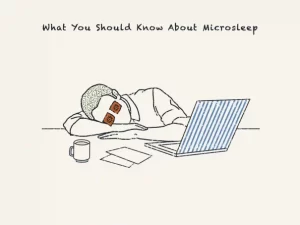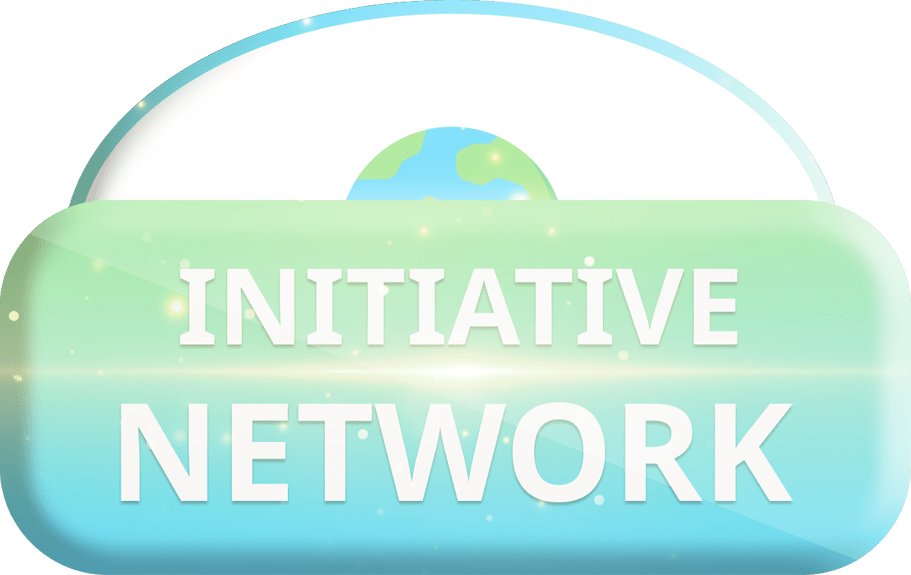
Micro Sleep
Micro sleep, often referred to as “mini-sleep” or “microsleep,” is a phenomenon characterized by brief episodes of sleep that occur involuntarily, lasting only a few seconds to a minute. Despite their short duration, micro sleeps can have serious consequences, particularly when they occur during activities that require attention, alertness, and concentration. In this article, we’ll explore the causes, symptoms, effects, and preventive measures of sleep micro to raise awareness about this often-overlooked sleep-related issue.
Understanding Micro Sleep: The Sneaky Threat to Safety and Productivity

Micro Sleep
Causes of Micro Sleep:
Micro sleep can be triggered by various factors, including:
- Sleep Deprivation: Lack of sufficient sleep, whether due to poor sleep habits, insomnia, or other sleep disorders, can increase the likelihood of micro sleep episodes.
- Fatigue: Mental or physical fatigue, resulting from prolonged wakefulness, strenuous activity, or demanding work schedules, can lead to micro sleeps as the brain struggles to maintain alertness.
- Monotonous Tasks: Engaging in repetitive luna togel login or monotonous tasks, such as highway driving or attending lengthy meetings, can lull the brain into a state of drowsiness, making sleep micro more likely to occur.
- Underlying Health Conditions: Certain medical conditions, such as sleep apnea, narcolepsy, or restless legs syndrome, can predispose individuals to Sleep Micro episodes.
Symptoms of Micro Sleep:
Recognizing the signs of sleep micro is crucial for identifying and addressing the issue. Common symptoms include:
- Sudden Head Nodding: Brief, involuntary nodding of the head, often accompanied by drooping eyelids and a slack jaw.
- Blank Staring: Vacant or unfocused gaze, indicating a temporary loss of awareness and attention.
- Delayed Reaction: Slowed response times or impaired motor coordination, particularly during tasks requiring concentration and precision.
- Memory Lapses: Forgetting recent events or actions that occurred during a micro sleep episode, leading to gaps in memory or awareness.
Effects of Micro Sleep:
Micro sleep can have serious consequences, both on an individual level and in terms of public safety and productivity. Some potential effects include:
- Increased Risk of Accidents: sleep micro episodes, particularly when driving or operating heavy machinery, can lead to accidents and injuries due to impaired reaction times and decreased vigilance.
- Decreased Performance: Micro sleep can impair cognitive function, memory consolidation, and decision-making, leading to decreased productivity and performance at work or school.
- Negative Health Impacts: Chronic sleep deprivation and frequent sleep micro can contribute to a variety of health problems, including cardiovascular disease, obesity, diabetes, and mental health disorders.
Preventive Measures:
To minimize the risk of sleep micro and its associated consequences, individuals can take several preventive measures, including:
- Prioritize Sleep: Ensure adequate sleep each night by practicing good sleep hygiene habits, such as maintaining a consistent sleep schedule, creating a relaxing bedtime routine, and optimizing sleep environment.
- Take Regular Breaks: Incorporate frequent breaks into activities that require prolonged concentration or alertness, allowing time for rest and rejuvenation.
- Avoid Driving While Fatigued: If feeling drowsy or fatigued, avoid driving or operating heavy machinery, as micro sleep episodes can pose a serious risk to safety.
- Seek Treatment for Sleep Disorders: If experiencing symptoms of underlying sleep disorders, such as sleep apnea or insomnia, seek evaluation and treatment from a healthcare professional.
Conclusion:
In conclusion, micro sleep is a concerning phenomenon that can occur in anyone, regardless of age or health status, and can have serious consequences for safety, productivity, and overall well-being. By understanding the causes, symptoms, effects, and preventive measures of sleep micro , individuals can take proactive steps to mitigate its impact and prioritize healthy sleep habits. Awareness and education are key to addressing this silent threat and ensuring a safer, more alert society.
Pros and Cons of Micro Sleep: Understanding the Short-Term Nap Phenomenon
Micro sleep, defined as brief episodes of sleep lasting only a few seconds to a minute, is a fascinating yet potentially disruptive phenomenon that affects individuals across various contexts. While micro sleep can offer some benefits, such as brief rejuvenation, it also poses risks, particularly when it occurs during activities that require sustained attention and alertness. In this article, we’ll delve into the advantages and disadvantages of micro sleep to provide a comprehensive understanding of this intriguing aspect of sleep physiology.
Advantages of Micro Sleep:
- Brief Rejuvenation: In some cases, micro sleep can provide a brief period of rest and rejuvenation, helping individuals feel momentarily refreshed and alert.
- Brain Reset: Short naps, including sleep micro, have been shown to have cognitive benefits, such as improved memory consolidation, mood enhancement, and increased mental clarity.
- Stress Reduction: Taking micro breaks throughout the day to engage in brief periods of relaxation or rest can help reduce stress levels and promote overall well-being.
- Enhanced Creativity: Some individuals report experiencing bursts of creativity or insight following micro sleep episodes, suggesting that brief periods of rest may stimulate creative thinking.
Disadvantages of Micro Sleep:
- Impaired Performance: Micro sleep episodes, particularly when occurring during tasks that require sustained attention and vigilance, can lead to impaired performance, decreased productivity, and increased errors.
- Safety Risks: Micro sleep, especially when driving or operating heavy machinery, can pose significant safety risks, as it may result in accidents and injuries due to impaired reaction times and decreased awareness.
- Disruption of Sleep Patterns: Frequent sleep micro episodes can disrupt normal sleep patterns, leading to sleep fragmentation, daytime sleepiness, and overall sleep deprivation.
- Underlying Health Issues: In some cases, sleep micro may be a symptom of underlying health issues, such as sleep disorders (e.g., sleep apnea, narcolepsy) or chronic sleep deprivation, which can have long-term health consequences if left untreated.
Mitigation Strategies:
To minimize the potential drawbacks of micro sleep and maximize its benefits, individuals can implement the following strategies:
- Prioritize Quality Sleep: Ensure adequate nightly sleep by practicing good sleep hygiene habits, such as maintaining a consistent sleep schedule, creating a comfortable sleep environment, and avoiding stimulants before bedtime.
- Take Planned Breaks: Incorporate regular breaks into activities that require prolonged concentration or alertness, allowing time for brief periods of rest and relaxation to prevent the onset of sleep micro.
- Address Underlying Issues: If experiencing frequent or disruptive micro sleep episodes, consult with a healthcare professional to rule out underlying sleep disorders or other health issues that may be contributing to the problem.
- Stay Active and Engaged: Engage in stimulating activities, regular exercise, and mental challenges throughout the day to promote alertness and reduce the likelihood of micro sleep.
Conclusion:
In conclusion, micro sleep presents a complex interplay of advantages and disadvantages, offering brief moments of rejuvenation while also posing risks to safety, productivity, and overall well-being. By understanding the potential benefits and drawbacks of micro sleep and implementing appropriate mitigation strategies, individuals can better manage this phenomenon and optimize their sleep health and daily functioning. Awareness, education, and proactive management are key to navigating the nuances of sleep micro and promoting a healthier, more alert lifestyle.
The Dangers of Micro Sleep: Understanding the Risks of Brief Unconsciousness
Micro sleep, although brief and often unnoticed, poses significant risks to individuals’ safety, productivity, and overall well-being. These short episodes of involuntary sleep can occur at any time, often without warning, and can have serious consequences, particularly when engaged in activities that require attention and alertness. In this article, we’ll explore the dangers of micro sleep and why it’s crucial to address this issue to prevent accidents and injuries.

Micro Sleep
Impaired Cognitive Function:
One of the most significant dangers of micro is its impact on cognitive function. During sleep micro episodes, the brain temporarily shuts down, leading to impaired decision-making, slowed reaction times, and decreased vigilance. This can be particularly hazardous when performing tasks that require sustained attention, such as driving, operating machinery, or working in hazardous environments.
Increased Risk of Accidents:
Micro sleep poses a significant risk of accidents and injuries, especially when it occurs during activities that demand focus and concentration. For example, falling asleep for just a few seconds while driving can result in a loss of control of the vehicle and lead to collisions, injuries, or fatalities. Similarly, micro sleep episodes in the workplace can lead to accidents, errors, and injuries, putting both employees and others at risk.
Reduced Productivity:
Frequent micro sleep episodes can significantly impair productivity and performance, both at work and in daily life. When individuals experience brief moments of unconsciousness throughout the day, their ability to concentrate, problem-solve, and complete tasks efficiently is compromised. This can lead to decreased work output, missed deadlines, and increased stress and frustration.
Negative Health Effects:
Chronic sleep deprivation, which often accompanies frequent sleep micro episodes, can have serious consequences for overall health and well-being. Prolonged sleep deficits have been linked to an increased risk of obesity, diabetes, cardiovascular disease, and mental health disorders such as depression and anxiety. Additionally, disrupted sleep patterns and insufficient rest can weaken the immune system, making individuals more susceptible to illness and infection.
Social and Personal Impact:
Micro sleep can also have social and personal consequences, affecting relationships, mood, and quality of life. Individuals who experience frequent sleep micro episodes may feel irritable, moody, or emotionally unstable due to sleep deprivation. Moreover, accidents or mistakes resulting from micro sleep can strain relationships, lead to legal repercussions, and cause long-lasting emotional distress for all parties involved.
Prevention and Management:
To mitigate the dangers of micro sleep, it’s essential to prioritize healthy sleep habits and address any underlying issues that may contribute to sleep deprivation or disturbances. This includes maintaining a consistent sleep schedule, creating a conducive sleep environment, practicing relaxation techniques before bedtime, and seeking treatment for sleep disorders or other medical conditions that may disrupt sleep.
Furthermore, individuals should be vigilant and aware of the signs of micro , such as sudden drowsiness, drooping eyelids, or difficulty focusing. If experiencing symptoms of sleep micro, it’s crucial to take immediate action to ensure safety, such as pulling over while driving or taking a break from demanding tasks.
Conclusion:
In conclusion, micro sleep may seem innocuous due to its brief duration, but it poses significant risks to individuals’ safety, productivity, and overall health. By understanding the dangers of sleep micro and taking proactive steps to prevent and manage it, individuals can safeguard themselves and others from accidents, injuries, and negative consequences. Sleep is a vital aspect of well-being, and addressing issues such as micro sleep is essential for promoting safety, productivity, and quality of life.
Read More Article About “Top Gun: Maverick Soars to New Heights: A Record-Breaking Sequel Takes Flight“

